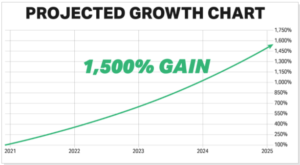At 11:59 p.m. Eastern time Thursday, up to 150,000 members of the United Auto Workers union could walk off the job if they don’t reach a deal on wages and working conditions with the big three automakers in Detroit.
The union is negotiating with management at General Motors (GM), Ford (F), and Stellantis (STLA) for a new four-year contract, with a deadline of Friday morning at midnight. Workers’ demands include a pay raise, more paid time off, and healthcare for retirees among other things. Union members voted to authorize a strike earlier this month. If the strike goes forward, it would be the first major auto strike since 2019’s 40-day work stoppage by 49,000 UAW workers at GM.1
How would such a strike impact the economy? Here’s what experts and public figures are saying:
Michael Pearce and Nancy Vanden Houten, lead U.S. economists at Oxford Economics
“As union participation and strike action is still low from a historical perspective, we don't think this marks a turning point in labor power, nor does it suggest an increased risk of a durable price-wage spiral over the coming years. We estimate a strike covering all workers would directly reduce U.S. GDP by 0.2%-0.3% due to a 30% decline in motor vehicle output for the duration of the strike.”
James Knightley, chief international economist at ING
“Assuming a deal can be resolved within a couple of weeks it shouldn’t be too impactful on vehicle pricing. Nonetheless, it would also be painful for economic activity, especially in the mid-west. There would be knock on effects for suppliers and consumer spending would be hit hard as household finances are already being squeezed.”2
Bernie Sanders, Independent progressive senator from Vermont
“What the UAW is fighting for is not radical. It is the totally reasonable demand that autoworkers, who have made enormous financial sacrifices over the past 40 years, finally receive a fair share of the record-breaking profits their labor has generated.”3
Kelly Walker, economist at Moody’s Analytics
“Vehicle production has picked up substantially this year, but a potential strike of United Auto Workers could derail progress just as production closes in on 2019 levels.
For the first time in its history, union leaders have threatened to strike against all three major automakers: Ford, General Motors and Stellantis. A potential supply disruption could reintroduce upward pressure on vehicle prices and make it more difficult for consumers to purchase a new vehicle.”
Patrick Anderson, principal and CEO of Anderson Economic Group, which predicted a 10-day strike could cause $5.6 billion in economic losses
“When the UAW went on strike against GM in 2019, Michigan experienced a single-quarter recession. That strike, which involved 48,000 workers at more than 50 plants, lasted six weeks. In 2023, there is the potential that a strike could involve more manufacturers, more workers, and more plants. If that happens, even a short strike would impact economies throughout Michigan and across the nation.”4
S&P Global Market Intelligence
“The economic impact of a strike will depend on which manufacturers are struck, for what length of time and how their competitors and suppliers react.
Any agreement will raise costs, but a rise in productivity over the past 20 years provides a buffer against the need to increase vehicle prices. Labor costs are also just 5% of manufacturing expenses, so a 46% settlement would only increase costs by 2% over four years. That may be enough, though, to provide a price disadvantage for U.S.-made vehicles.”5
Article Sources
- United Auto Workers. “97% Of UAW's Big Three Members Vote Yes To Authorize Strike.”
- ING. “Lingering US inflation fears leave a final rate hike on the table.”
- Bernie Sanders. “The United Auto Workers may soon strike. Every American should support them.”
- Anderson Economic Group. “10-day UAW strike against Big Three could cause economic losses exceeding $5 billion.”
- S&P Global. “Assessing a potential United Auto Workers strike.”











